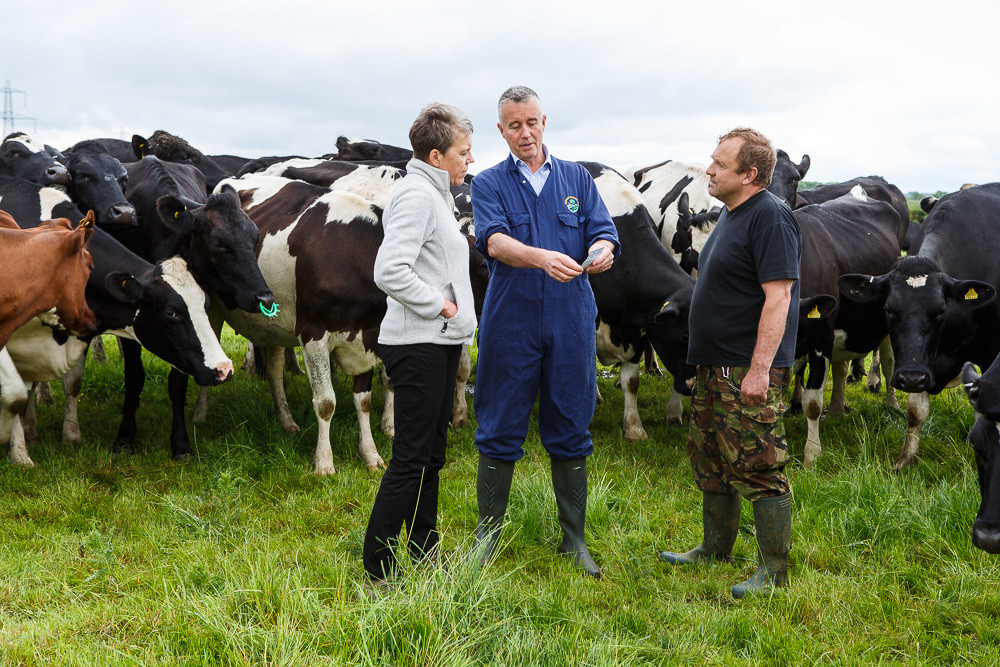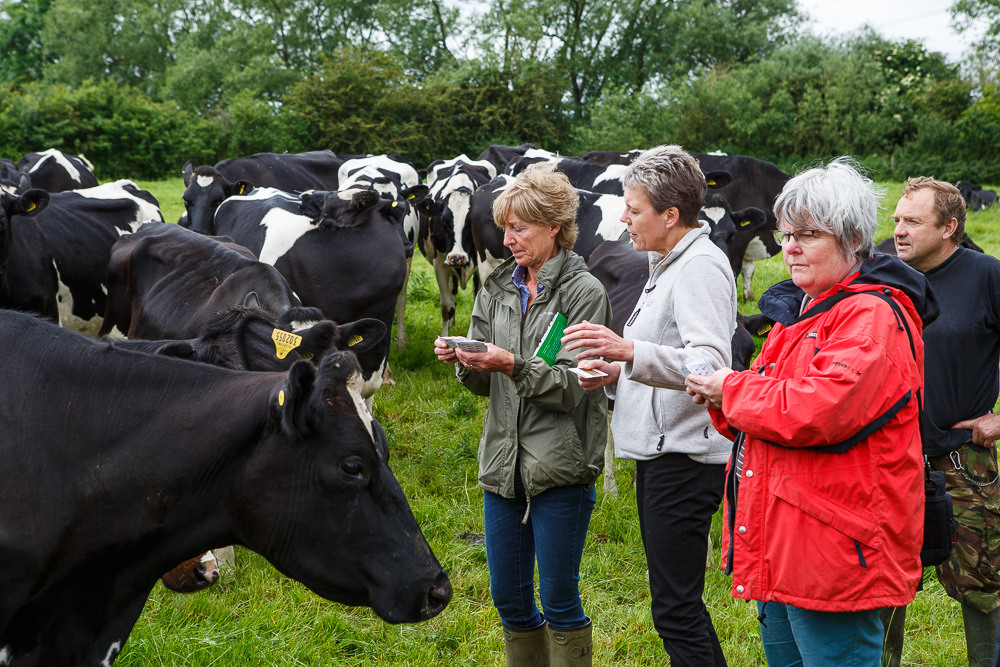
Innovative Farmers, a not-for-profit network funded by Prince Charles’s Charitable Foundation, highlights the value of herd observation and analysis using the Obsalim® technique, following results from three farms involved in field lab.
This field lab, held over the past two years, suggested the technique reduces feed costs and improves efficiency by making rumen stability better. Three herds participated in the field lab. An important finding for all herds was the need to establish a synchronised eating and ruminating cycle – helping to prevent overeating.
All dairy farmers are constantly observing their herds. But this group of Innovative Farmers used the Obsalim® technique to help analyse the physical condition of their animals. This technique allows the farmer to identify everyday signs (e.g. the condition of the coat or composition of their dung) and using a set of ‘symptom cards’ identify what is happening in the rumen. Following a diagnosis, changes to the distribution or composition of the ration, or to the management of the herd can improve the efficacy of the transformation of the ration, potentially reducing costs and making the herd more productive.
Christine Gosling at Berkley Farm Dairy was involved in the field lab. She said: “I had heard about the ‘Obsalim®’ technique, which was developed in France, from my vet Edward De Beukelaer and after using the technique for a while wanted to share my knowledge with other farmers so I initiated a field lab through Innovative Farmers to run a trial.

“Through the field lab Edward could teach us how to use the cards effectively and how to recognise the symptoms. It has taken a while to feel really confident in using and applying the system unaided but overall it allows us to reduce input costs whilst improving the efficiency of the herd.”
The field lab was run through Innovative Farmers, a not-for-profit network that gives farmers the tools to run their own investigations into common farming problems. Through the Innovative Farmers network farmers are encouraged to share their experiences to improve their farming techniques and farm viability
A large part of this field lab involved training from Obsalim® specialist, Edward De Beukelaer. Kate Still of the Soil Association facilitated the group, and together they were able to support the farmers involved in the field lab. Repeated meetings were held at each of the three farms to assess the herds and make suggested changes to management or feed rations.
It was noted that in order for the herd to find their rhythm and ruminate effectively it was important to allow them to synchronise. Splitting the feeds into morning and afternoon and establishing an undisturbed period of rumination in between improved rumen function.
Kate Still animal welfare advisor at the Soil Association said: “This field lab has really shown us that to allow cows to make the most of the feed they are given they need both time to digest it effectively and structural fibre to aid that digestion. Establishing a system that allows the herd to feed together and then lie down and ruminate together, undisturbed, enables them to be more efficient at converting feed and healthier as a result. Cows that are disturbed by others feeding or by having feed constantly available are more inclined to snack and over eat, resulting in poor rumen function. Training calves to establish this rhythm early on results in healthy rumen function from the start.”
All farmers involved in the field lab reported benefits to the herd and emphasised the importance of understanding their cows. The group is now looking for new members to continue to learn and share experiences.
